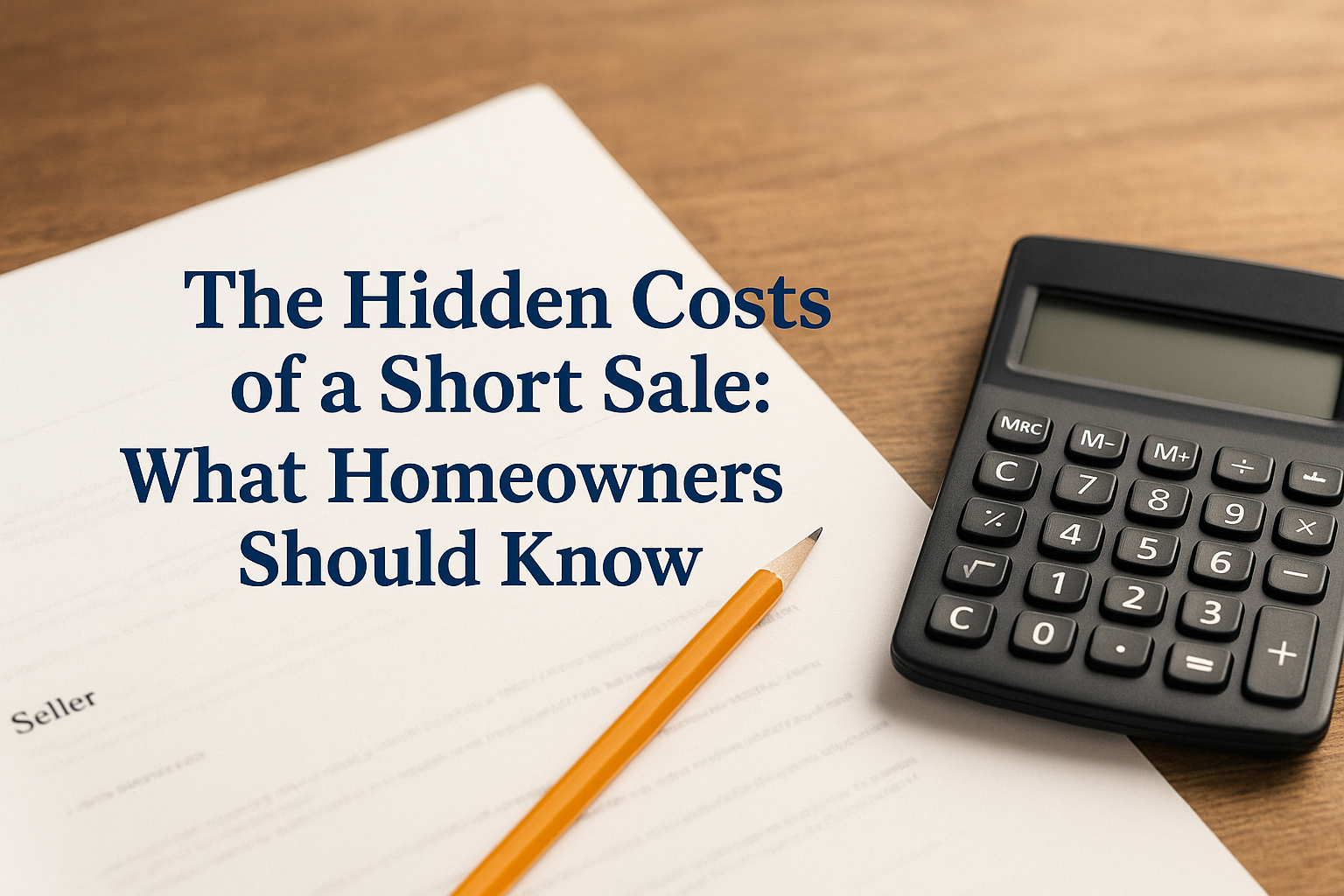Understanding the True Cost of a Short Sale
While short sales are often seen as a “no-cost” alternative to foreclosure, that’s not entirely accurate. Most lenders cover many expenses to encourage the sale, but homeowners may still face out-of-pocket costs or tax obligations. Knowing what to expect helps prevent last-minute surprises.
For a refresher on what a short sale actually involves, visit our What Is a Short Sale page.
1. Closing and Title Fees
Even though lenders typically pay closing costs during a short sale, this isn’t guaranteed. Depending on your lender’s approval terms and the purchase agreement, you might still need to cover:
> Title insurance
> Recording fees
> Attorney or settlement charges
These costs are often negotiated during the approval stage, so it’s important to review your lender’s final statement carefully.
2. Property Repairs or Inspection Costs
Many short sale homes are sold as-is. However, some lenders or buyers may request minimal repairs or inspections before closing. If the home requires safety-related fixes or compliance checks, you might need to invest a small amount upfront to move the sale forward.
3. Relocation Expenses
Relocating after a short sale isn’t always covered. Some lenders offer relocation assistance programs—commonly known as “cash for keys”—but they vary widely. Homeowners should budget for:
> Moving costs
> Temporary housing or rent deposits
> Utility transfers
Check out our Short Sale Stages for Homeowners page for what happens before and after the closing process.
4. Tax Implications
Forgiven mortgage debt may be considered taxable income by the IRS, depending on the situation. While federal laws such as the Mortgage Forgiveness Debt Relief Act have provided exemptions in certain years, homeowners should always verify their eligibility.
It’s crucial to consult a licensed tax professional or attorney for personalized guidance. Short Sale Cooperative does not provide legal advice.
For more details, visit the IRS page on this topic:
https://www.irs.gov/taxtopics/tc431
5. Credit and Loan Aftereffects
While not a direct cost, the impact on your credit profile can affect your ability to secure future loans or rentals. Learn more on our Credit Impact Page to understand how a short sale compares to foreclosure in terms of long-term financial recovery.
Preparing for a Smooth Short Sale
Being proactive about these costs helps you stay in control of the process. A knowledgeable short sale expert can negotiate better terms with your lender and help identify areas where costs can be minimized or waived.
If you’re unsure how to begin, contact our team directly through the Homeowners Page to connect with a short sale specialist.

Recent Comments